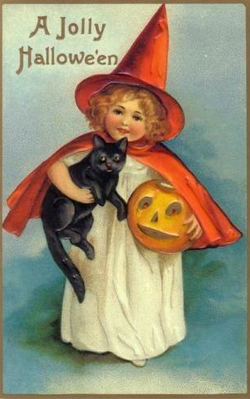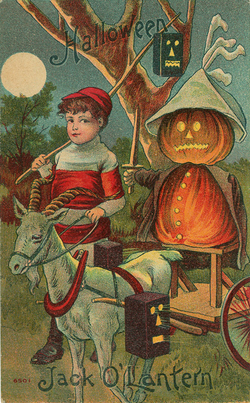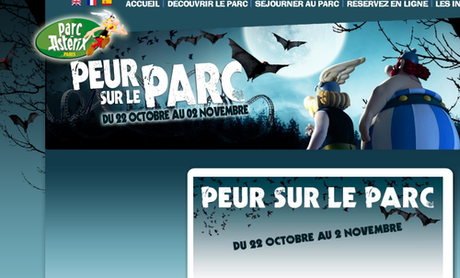

Halloween in Paris has come to have a slightly bitter taste for me. When I first moved here and my kids were small, the French had barely heard of Halloween and enjoyed the exotic "American" holiday when we had parties. But a few years ago, in 2004, after a determined commercial push by a few merchants that led, among other things, to real Halloween trick-or-treating by small French children in some Paris neighborhoods, the French Catholic church took umbrage and pushed back with a campaign called "Holy Win" in which they encouraged people to celebrate All Saints' Day by going to cemeteries. Determined elderly women dressed from head to toe in navy blue pressed flyers into your hands at the market. Signs appeared in all the petits commerces against Halloween. Newspaper articles called for a return to the faith (anti-Americanism). Anti-American leftists and anti-American rightists rushed to show their disdain for Halloween by sneering at it in public and private until they squeezed the joy out of it for me.
Of course, this great reverence of the Eldest Daughter of the Church (an old nickname for France) for Christian, not pagan, celebrations does not go as far as campaigning against pagan Christmas trees (which spread to France quite recently after becoming stylish in England through Queen Victoria's German family), pagan Easter eggs and chocolate rabbits, or pagan costumes for Mardi Gras, the day before Ash Wednesday. No. It's reserved for something seen as American.
As I have pointed out before, Ireland, a far more Catholic country than France, has a church which enjoys Halloween and sees it as harmless fun. How else to read the anti-Halloween fervor except as anti-Americanism?
Even Parc Astérix, the fun amusement park which has cashed in on the American-initiated trend to opening theme parks at night for Halloween during October, has carefully avoided using the contaminated word "Halloween" in its advertising for the event.


